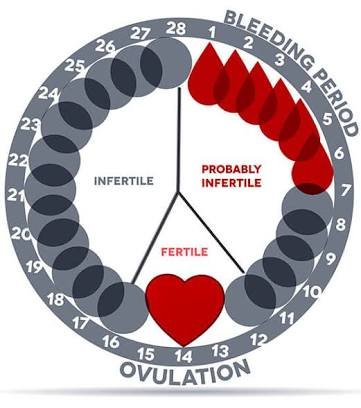MISTAKES 'CHILDLESS' COUPLES MAKE

Involuntary childlessness is one of the greatest challenge in Africa. The women usually seem to be on the receiving side but observed the affected men are more troubled than the women even though “poorly expressed”. At the wake of this challenge, anxiety and ignorance make many couples fool themselves. The common mistakes couples make includes:
POOR FOLLOW-UP OF THE WOMEN REPRODUCTIVE CALENDAR
Several couples complains of the futility of their numerous sexual exposures across months. These couples fire discriminately (without direction). They meet whenever they consider necessary and most times at wrong periods. Some even go into fasting and prayers during the most fertile period of the women. Of course the root of such miscalculation is ignorance of the women’s reproductive calendar. Another contributing factor is illiteracy, particularly on the side of the women who could not give the account of their menstrual periods and changes.
NOTE: Out of the 365 days that makeup a year, a woman has averagely 48 chances of being pregnant thought the year. Ironically, most couples consume themselves during the odd days while allowing the vital days to pass unutilized.

For you to understand how to track down the most fertile period of a woman, that's, the time she is most likely to be pregnant, you must first know the woman’s menstrual calendar. Most women see their periods every 28 days; others vary from 26-30 days. It is the duty of both the man and his wife to follow-up this interesting chat. This knowledge has helped the men of old spaced their children without artificial contraceptive method.
Irrespective of the interval between two menstrual periods of a woman, the time she releases the egg from the ovary (ovulation period) remains the same. Most women ovulate on the 14th day starting from the first day they see their period. It’s during the period of ovulation that most women get pregnant if there is no other cause (s) of infertility.
There are other body changes that could occur in a woman during the ovulation period changes like slight increase in their body temperature (the woman feels warmer or hotter), she may have mild abdominal clamp and women that check themselves very well could observe that vaginal or cervical mucus becomes thinner or mildy watery or slimy. Unfortunately, most of the women do not observe those changes even when the occur. With the basic understanding of the woman’s fertile period i.e ovulation, couples can know when best to meet for optimum result.
As earlier stated, a woman releases her egg on the 14th day starting from the first day she sees her period. On the other hand, the sperm has been found to survive within the woman’s body for 48-72 hours i.e 2-3 days. Therefore, couples have a high chance of achieving pregnancy if they meet within the period of two days before ovulation and two days after ovulation; that is between 12th and 16th day of the menstrual cycle, counting from the first day of her menses. Outside this period could be likening to firing amiss.

In another development, it is important to mention her the effect of sperm on early pregnancy. Some women complain of missing their periods which suddenly came out after few weeks. There several causes of such early abortion, mainly, chromosomal abnormality. However, research has shown that semen contains a compound called PROSTAGLANDIN which helps the sperm to function. The compound can also cause dilatation of the cervix, the is initiates gradual opening of the mouth of the womb. The effect which can lead to early abortion, it occurs in rare occasion. It is advisable for couples, particularly the expectant ones, to minimize sexual exposure during the first few weeks the spouses miss their period.
GIVING UP BEFORE IT IS OVER

It may bit your imagination to know that majority of couples who may claim to have 10 years history of childlessness, never stayed together for two years. Majority of them give up after the first one or two years of marriage.
APPORTIONING BLAMES TO EACH OTHER
Contrary to what makes the bedrock of marriage relationship in Western world, Africans’ marital harmony centers on childbearing. A three month history of childlessness is enough for a man to redefine his love for the wife. In majority of cases, after some time if failed expectations, the prayers and wishes of the man and the woman vary. The man first believe that the problem comes from his wife while the woman would be wishing the man be found wanting. Such variance could be dictated through their utterance in challenging times.
SEEKING FOR RESULTS OUTSIDE THE MARRIAGE VOWS
One of the products of the ‘self-defense’ is the desire to proof oneself outside the matrimonial home. This is more common with men. Men with infertility are almost always tempted to know their capabilities outside their wives. In most cases, such adventure never ends without an irreparable injury to the existing marital relationship.
THANKS FOR READING, IF YOU LIKE MY POST PLEASE UPVOTES, RESTEEM, COMMENT AND FOLLOW @arthurjnr
Here is the link to my previous post. MANAGING AN INCIDENT below..